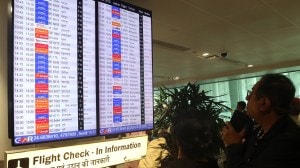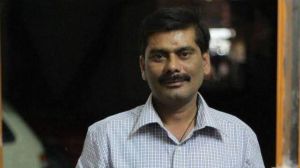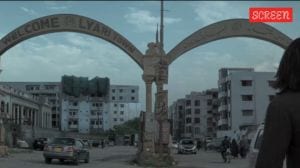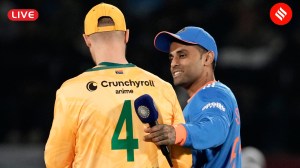RSS seeks trifurcation of J-K
NEW DELHI, AUG 27: The Rashtriya Swayamsewak Sangh RSS is testing the water in Jammu and Ladakh region on its demand for trifurcating th...

NEW DELHI, AUG 27: The Rashtriya Swayamsewak Sangh RSS is testing the water in Jammu and Ladakh region on its demand for trifurcating the state of Jammu and Kashmir. For the first time, the Sangh made its views public at a symposium held in the Capital yesterday titled Kashmir: What next?8217;
The symposium, organised by intellectual forum Jigyasa and backed by the Sangh Parivar, was addressed by two of its senior leaders, M.G. Vaidya and Indresh Kumar, along with Rajya Sabha MP and senior journalist Kuldip Nayar. The two RSS leaders endorsed the demand for reorganisation or trifurcation of Jammu and Kashmir, saying it would go a long way in fulfilling the political and developmental aspirations of the people of Jammu and Ladakh and also for better integration of these parts with the rest of the country.
The demand for reorganisation of Jammu and Kashmir centres around trifurcating the state into three parts 8212; the Valley, Ladakh and Jammu. It entails giving Union Territory-status to Ladakh, and recognising the Valley and Jammu as separate states.
The RSS is interacting with the people of the two regions to gauge their mood and is eagerly awaiting the outcome of a symposium to be organised by some local outfits in Jammu on August 31 8212; on the issue of granting separate statehood to the region.
8220;If the people of Jammu decide to retain their ties with the Valley by enjoying the privileges enjoined by Article 370, we shall continue with status quo,8221; said Vaidya, adding that if the people wanted a separate state, their aspirations must be taken into account. 8220;The demand for more autonomy has been supported only by the people of the Valley which is represented by Farooq Abdullah. If the people of Jammu and Ladakh do not want more autonomy, why should we impose it on them ?8221; he asked.
According to Vaidya, the people of Ladakh have already articulated their demand for UT status to the region. 8220;Parties ranging from the Buddhist association, the Congress and even the National Conference have supported this demand,8221; he said.
The RSS veteran rejected the charge that the demand would be an endorsement of the two-nation theory. 8220;The reorganisation of J-K does not mean surrendering before the two-nation theory, nor is it a communal demand,8221; he asserted, adding: 8220;The states of Mizoram and Meghalaya were carved out from Assam, even though it was evident that they would be Christian-majority states. Nobody raised a hue and cry then. When greater Punjab was divided into two states, there was no outcry either. Why should there be such a noise in this case?8221;
He wondered as to how Jammu could be labelled a communal state because of a Hindu majority there. 8220;On this logic, all states in India are communal states,8221; he pointed out. Another reason that he cited for the state8217;s trifurcation was that 90 per cent of the funds allocated to the state were spent on the Valley, neglecting both Ladakh and Jammu.
- 01
- 02
- 03
- 04
- 05































